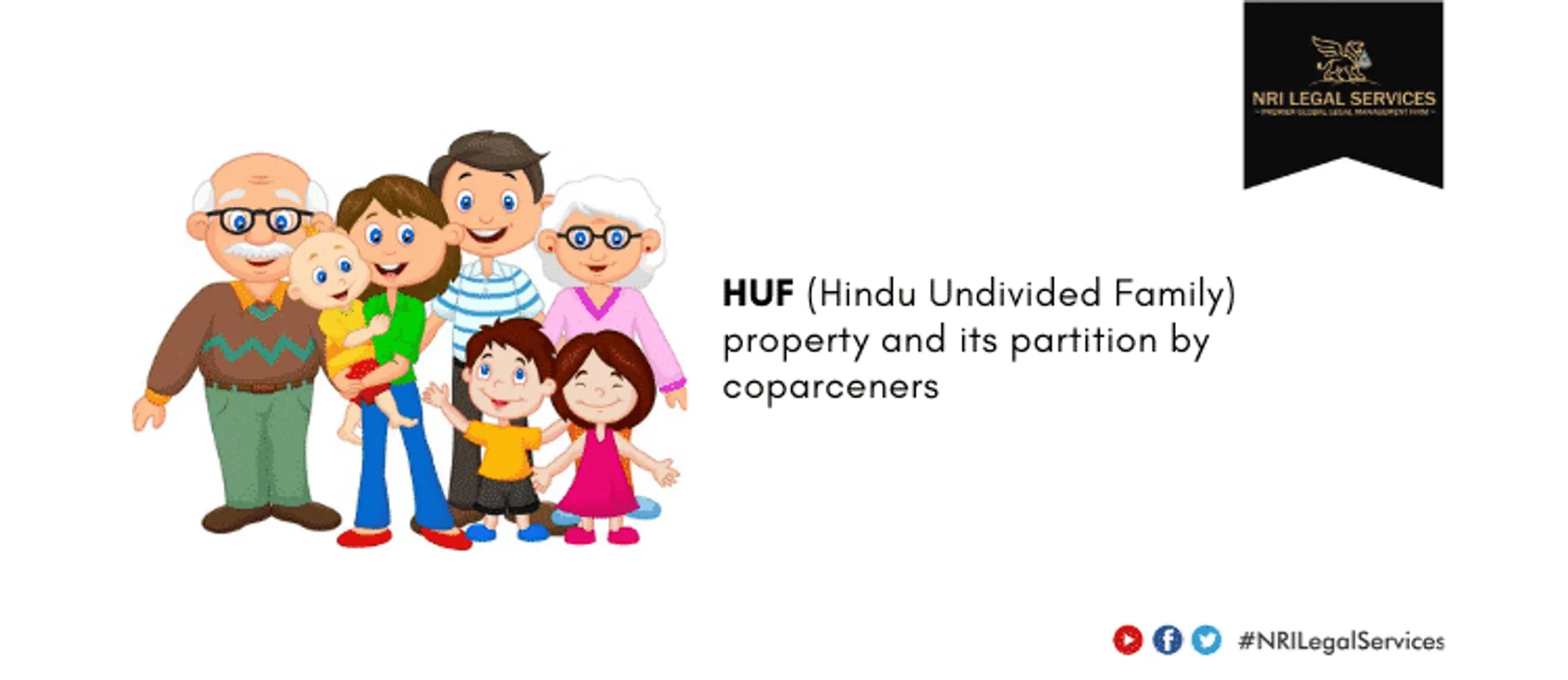HUF or Hindu Undivided Family, consists of several members related to each other through a common ancestor. Coparceners are a small unit of four generations of lineal descendants of a common ancestor within this family. The property held jointly by the members of the family is called HUF property, and only the coparceners can seek partition of the same.
What does HUF actually infer?
It is a family comprising of lineal descendants of a common ancestor and their wives and unmarried daughters. Its creation is automatic when the person gets married. A child is integrated into it at the time of birth. It cannot be formed by a single person but requires at least two.
Any number of persons can be members of HUF. They may have a remote relationship with the common ancestor and are connected through:
- Marriage
- Birth
- Adoption
Coparcener
A coparcener is a member who acquires right in the HUF property by birth. The coparcenary is formed of four male lineal descendants and also consists of collaterals, i.e. uncles, cousins and so on, within this four generation. Wives are not coparceners.
After the amendment in the Hindu Succession Act, 1956, in the year 2005, daughters are also coparceners.
The concept of HUF property
For existence of HUF, it is not necessary that there should be a joint estate. It can exist without any property.
There is a legal presumption that the property of the Hindu Undivided Family is joint. Its income belongs to all the members. If a member claims to hold separate property, the same has to be proved.
Read: Partition Lawsuit
The Income Tax Act recognizes HUF as a separate entity. A PAN number separate from its members is allotted to it. The income is taxed separately from its members.
HUF can acquire property in any of the following manners:
- Gift
- Will
- Ancestral Property
- Property purchased by paying sale consideration out of HUF income
- Property added in the common pool
Each member has a right to maintenance from the joint property.
Partition gets affected:
- By agreement to divide the property
- By filing suit
- By giving notice: The coparceners can give notice of his intention to severe his share from the HUF property.
- Partition by conduct: The conduct like severance of business, severance of residence (house), severance of income and expenditure, is a clear intention of a coparcener to sever ties with the HUF.
- By Karta: The Karta of the family can seek partition and divide the property
- Automatic severance: When a coparcener converts to another religion, there is an automatic severance of that person from the HUF. But other remaining members continue to form HUF.
Read: Property Title Search
Total and Partial Partition
In total partition, the joint family status comes to an end, and the members get separated with their share.
In partial partition, only a few members get separated, and others remain joint. Or there is a separation of some properties, and other remains intact.
Partition under the Income-tax Act is recognized only if it is full both as to the property and the persons.
Share of each coparcener fluctuates with the addition and deletion of members by birth and death. After partition, the coparcener becomes the absolute owner of his share and is free to dispose of the same. In case he dies intestate, the share passes to the legal heirs as per the Hindu Succession Act.
NRI Legal Services is now on Telegram. Join NRI Legal Services channel in your Telegram and stay updated.

